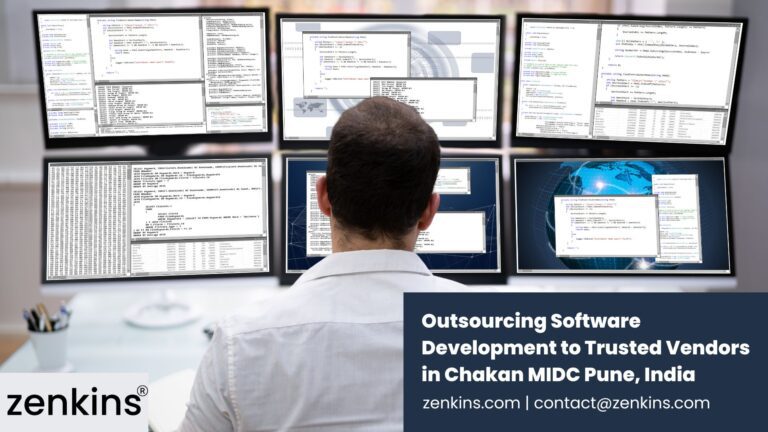Unveiling the Power of a Custom Manufacturing Execution System
Table of Contents
Streamlining production processes is a critical goal for manufacturers seeking to enhance efficiency and remain competitive in today’s dynamic market landscape. One key tool that plays a pivotal role in achieving this objective is a Manufacturing Execution System (MES). In this article, we will delve into the power of custom MES solutions, exploring their benefits, key features, implementation steps, success stories, and future trends. By uncovering the potential of a tailored MES, businesses can optimize operations, boost productivity, and drive innovation in their manufacturing environments.
Introduction to Manufacturing Execution Systems (MES)
Understanding the Role of MES in Manufacturing
Picture this: you’re a conductor orchestrating a symphony of machines, workers, and resources in a factory. That’s essentially what a Manufacturing Execution System (MES) does – it keeps everything running smoothly and on beat.
Manufacturing Execution Systems (MES) serve as the nerve center of production operations, providing a digital bridge between planning and execution. At its core, MES is a software solution that enables manufacturers to monitor, control, and optimize their production processes in real time. From order management and scheduling to resource allocation and quality control, MES encompasses a wide range of functionalities designed to enhance efficiency, visibility, and traceability across the manufacturing value chain.
Benefits of Implementing a Custom MES
Enhanced Operational Efficiency
By automating and streamlining production processes, custom MES helps manufacturers eliminate manual errors, reduce cycle times, and optimize resource utilization, leading to significant gains in operational efficiency and productivity.
Improved Quality and Compliance
With robust quality control mechanisms and real-time monitoring capabilities, MES enables manufacturers to maintain high product quality standards and ensure compliance with industry regulations and standards.
Enhanced Visibility and Traceability
MES provides comprehensive visibility into production operations, allowing manufacturers to track and trace the movement of materials, products, and resources across the entire value chain. This visibility enhances decision-making, facilitates root cause analysis, and supports continuous improvement initiatives.
Agile and Responsive Manufacturing
Custom MES empowers manufacturers to adapt quickly to changing market dynamics, customer demands, and production requirements. By enabling real-time data exchange and decision-making, MES facilitates agility, responsiveness, and flexibility in manufacturing operations.
Cost Reduction and Resource Optimization
Through optimized production planning, resource allocation, and inventory management, custom MES helps manufacturers minimize waste, reduce inventory holding costs, and optimize resource utilization, resulting in significant cost savings and improved profitability.
Key Functionalities of Custom MES
Production Planning and Scheduling
A custom MES allows manufacturers to create detailed production plans and schedules based on demand forecasts, resource availability, and production constraints. By optimizing production sequences and allocating resources effectively, MES helps minimize downtime, reduce lead times, and maximize throughput.
Work Order Management
MES facilitates the creation, tracking, and management of work orders throughout the production lifecycle. From order initiation to completion, manufacturers can monitor the progress of each work order in real time, ensuring timely execution and adherence to quality standards.
Resource Allocation and Monitoring
With MES, manufacturers can efficiently allocate resources such as manpower, materials, and equipment to specific tasks and processes. Real-time monitoring capabilities enable supervisors to track resource utilization, identify bottlenecks, and optimize production flows for maximum efficiency.
Quality Control and Compliance
Quality management is a critical aspect of manufacturing, and MES plays a key role in ensuring product quality and regulatory compliance. By implementing quality control measures and capturing real-time data on process parameters and product attributes, MES helps identify and rectify deviations from quality standards promptly.
Inventory and Warehouse Management
MES provides visibility into inventory levels, stock movements, and warehouse operations, allowing manufacturers to optimize inventory levels, minimize stockouts, and improve inventory accuracy. Integration with enterprise systems enables seamless data exchange and synchronization across the supply chain.
GIFT City: A Hub for Innovation in Financial Software Development
Steps to Implementing a Custom Manufacturing Execution System
Assessment of Current Processes and Needs
Before diving in, take a step back to assess what you have and what you need. It’s like Marie Kondo-ing your production processes – keeping what sparks joy and discarding the rest.
Customization and Configuration for Specific Requirements
Just like ordering a customizable pizza, work with experts to tailor your custom MES to fit your unique requirements. It’s like getting a bespoke suit for your factory – a perfect fit for maximum efficiency.
With a custom Manufacturing Execution System by your side, you’ll be conducting a harmonious symphony of production, hitting all the right notes for success.
Implementing Custom MES: Best Practices and Considerations
Define Clear Objectives
Before implementing a custom MES, manufacturers should clearly define their objectives, requirements, and performance metrics. By aligning MES implementation with business goals and priorities, manufacturers can ensure successful adoption and maximize ROI.
Engage Stakeholders
Effective stakeholder engagement is crucial for MES implementation success. Manufacturers should involve key stakeholders, including production managers, IT professionals, and shop floor operators, in the decision-making process and ensure their buy-in and commitment to the project.
Select the Right Technology Partner
Choosing the right technology partner is essential for MES implementation success. Manufacturers should evaluate vendors based on their industry expertise, track record, technical capabilities, and ability to deliver custom solutions tailored to specific business needs.
Ensure Seamless Integration
Seamless integration with existing systems, such as ERP, PLM, and SCADA, is critical for MES implementation success. Manufacturers should carefully plan and execute integration efforts to ensure data consistency, interoperability, and smooth data flow across the enterprise.
Provide Training and Support
Comprehensive training and ongoing support are essential for user adoption and system success. Manufacturers should invest in training programs to familiarize users with MES functionalities, workflows, and best practices and provide timely support to address any issues or challenges that may arise during implementation and operation.
Case Studies: Success Stories of Custom MES Implementation
Industry-specific Examples of Custom MES Implementation
Let’s talk real talk – seeing is believing. Dive into these case studies where businesses leveled up their production game with custom Manufacturing Execution Systems. From automotive to food and beverage, these success stories showcase how tailoring an MES to specific industry needs can lead to major efficiency gains and high-fives all around.
A leading provider of automotive components faced challenges with manual production planning, resource allocation, and quality control processes. To address these issues and enhance operational efficiency, the company implemented a Custom Manufacturing Execution System (MES) tailored to its specific requirements.
The MES solution enabled the company to automate production scheduling, optimize resource utilization, and enforce quality control measures across its production lines. Real-time monitoring capabilities provided visibility into production operations, allowing supervisors to identify bottlenecks and take corrective actions promptly. As a result, the company experienced a significant reduction in production lead times, minimized downtime, and improved overall equipment effectiveness (OEE).
Maximizing Efficiency and Quality Control with Custom MES
Quality Assurance and Compliance Management
Nobody likes surprises, especially when it comes to quality control. With a custom MES, you can keep a hawk-eye on quality assurance and compliance requirements. Say goodbye to sleepless nights worrying about passing those audits, as your tailored system keeps you on top of every regulation and standard like a boss.
Optimizing Workflows and Streamlining Production Processes
Ain’t nobody got time for bottlenecks and inefficiencies in production. Enter the hero of the story – custom MES. By optimizing workflows and streamlining processes, your manufacturing operation can run smoother than a freshly greased conveyor belt. Less waiting around, more getting things done.
Future Trends and Innovations in Manufacturing Execution Systems
Integration with IoT and Predictive Analytics
The future is now, baby! Imagine your MES not just tracking production, but also playing nice with IoT devices and churning out predictive analytics like a crystal ball. This integration opens up a whole new world of possibilities, from proactive maintenance to predicting demand with Jedi-like precision.
Advancements in Machine Learning and Artificial Intelligence in MES
Who needs clairvoyants when you’ve got machine learning and AI on your side? The latest MES innovations are taking a page out of sci-fi books, using smart algorithms to optimize production schedules, detect anomalies before they become problems, and basically make your manufacturing process run like a well-oiled machine on autopilot. The robots are coming, but hey, they’re here to help.
Conclusion
In conclusion, a custom Manufacturing Execution System empowers organizations to revolutionize their production processes, harnessing the latest technologies and tailored solutions to unlock unparalleled efficiency and quality control. By embracing the capabilities of a custom MES, businesses can navigate the evolving manufacturing landscape with confidence, driving continuous improvement and staying ahead of the competition. With a strategic focus on streamlining production operations, companies can optimize resource utilization, enhance decision-making, and pave the way for future growth and success.
FAQ
What is the difference between a standard MES and a custom MES?
The primary difference between a standard MES and a custom MES lies in their level of customization. While a standard MES offers pre-built functionalities designed to cater to general manufacturing processes, a custom MES is tailored to meet the specific requirements and workflows of a particular manufacturing facility. Custom MES solutions are built from the ground up, allowing for greater flexibility, scalability, and alignment with the unique needs and objectives of the organization.
How can a custom Manufacturing Execution System benefit small to medium-sized manufacturing businesses?
A custom Manufacturing Execution System (MES) can offer significant benefits to small to medium-sized manufacturing businesses by addressing their specific operational challenges and optimizing their production processes. Unlike off-the-shelf solutions that may lack flexibility or fail to accommodate unique workflows, a custom MES can be tailored to streamline operations, improve resource utilization, enhance quality control, and increase overall efficiency. Additionally, custom MES solutions can scale alongside the business as it grows, providing long-term value and competitive advantage.
What are the key considerations when selecting a vendor for implementing a custom MES?
When selecting a vendor for implementing a custom MES, several key considerations should be taken into account. Firstly, the vendor’s experience and expertise in developing custom MES solutions for manufacturing industries similar to yours are essential. It’s crucial to assess their track record, references, and portfolio of successful implementations. Additionally, the vendor’s ability to understand your specific requirements, communicate effectively, and provide ongoing support and maintenance should also be evaluated. Furthermore, factors such as scalability, integration capabilities, and compliance with industry standards and regulations should be thoroughly assessed before making a decision.
How can companies measure the ROI of implementing a custom MES in their production processes?
Measuring the return on investment (ROI) of implementing a custom MES in production processes involves evaluating both tangible and intangible benefits against the initial investment. Tangible benefits may include cost savings from improved efficiency, reduced waste, and optimized resource utilization, while intangible benefits could encompass enhanced product quality, increased customer satisfaction, and improved decision-making capabilities.
Companies can quantify these benefits by analyzing key performance indicators (KPIs) such as production cycle time, defect rates, throughput, and inventory levels before and after implementing the custom MES. Additionally, conducting regular reviews and assessments to track progress against predefined objectives and benchmarks can help gauge the overall impact and ROI of the custom MES implementation over time.




